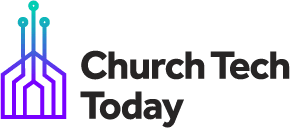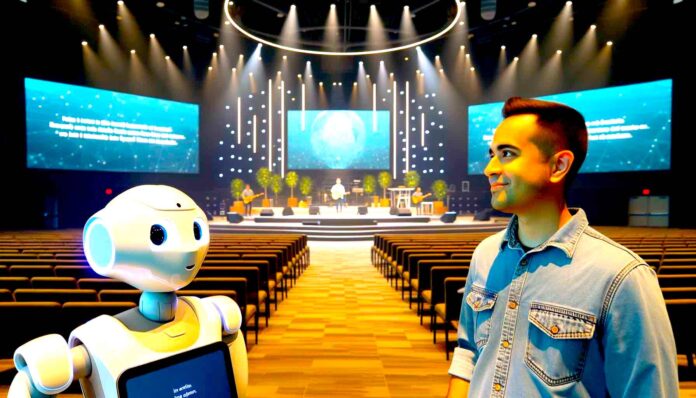Over the last decade, churches have increasily adopted new technologies to enhance their operations and engage with their communities: ChMS, texting, email, etc. One such technology that is revolutionizing the way churches interact with their congregation is ChatGPT and generative AI. Powered by artificial intelligence (AI), ChatGPT offers a range of exciting possibilities for churches to streamline communication, automate administrative tasks, provide spiritual guidance, and explore new horizons.
Understanding the Power of ChatGPT for Churches
The Role of AI in Modern Churches
With the rapid advancements in technology, AI has become an integral part of many industries, including religion. The use of AI in churches helps improve operational efficiency, enhance community engagement, and provide personalized services to the congregation. ChatGPT, as an AI-powered chatbot, can be a valuable addition to a church's toolkit.
ChatGPT, with its remarkable capabilities, can revolutionize the way churches interact with their members. By leveraging the power of AI, churches can offer a more immersive and engaging experience to their congregation. Imagine a chatbot that can answer questions about the church's history, provide information about upcoming events, and even offer spiritual guidance. The possibilities are endless.
The Basics of ChatGPT Technology
ChatGPT utilizes a deep learning model to generate responses in conversations. It learns from vast amounts of data to develop an understanding of natural language. As a result, it can respond intelligently to various inquiries and provide guidance or assistance.
But how does ChatGPT actually work? Behind the scenes, this AI-powered chatbot consists of multiple layers of neural networks. These networks are trained on a diverse range of text data, allowing ChatGPT to grasp the nuances of human language. By analyzing patterns and contextual cues, it can generate coherent and relevant responses.
One of the key advantages of ChatGPT is its ability to adapt and learn from user interactions. As more conversations take place, the chatbot becomes increasingly knowledgeable and refined in its responses. This continuous learning process ensures that the chatbot stays up-to-date with the needs and preferences of the church community.
Moreover, ChatGPT can be customized to reflect the unique values and beliefs of a particular church. By incorporating specific teachings and doctrines, the chatbot can provide guidance that aligns with the church's principles. This personalization creates a more meaningful and authentic experience for the users.
Another noteworthy feature of ChatGPT is its versatility. It can handle a wide range of inquiries, from simple questions about service timings to more complex theological discussions. The chatbot's ability to provide accurate and relevant information fosters a sense of trust and reliability among churchgoers.
Furthermore, ChatGPT can assist in streamlining administrative tasks within the church. It can automate processes such as event registration, volunteer coordination, and donation management. By reducing the burden of manual labor, the chatbot frees up valuable time and resources for church staff to focus on more impactful activities.
As churches embrace the power of AI, it is crucial to ensure that the technology is used ethically and responsibly. While ChatGPT can provide valuable support, it should never replace the human connection and pastoral care that churches offer. The chatbot should be seen as a tool to enhance and augment the existing services, rather than a substitute for genuine human interaction.
As you can see, AI holds immense potential for churches seeking to leverage technology to scale personal relationships and ministry work. By harnessing the power of natural language processing and machine learning, churches can create a more engaging and personalized experience for their congregation. As technology continues to evolve, it is exciting to envision the future possibilities that AI can bring to the realm of religion.

Enhancing Community Engagement with ChatGPT
Streamlining Communication Processes
Communication plays a vital role in any church community. Effective and efficient communication ensures that congregation members are well-informed and connected. With the advent of technology, churches can now leverage ChatGPT to streamline their communication processes.
ChatGPT is an AI-powered chatbot that can provide instant responses to common questions and concerns. Whether it's regarding church events, service times, or general inquiries, a custom chatbot using the technology behind ChatGPT can assist congregation members promptly. This not only saves time and effort for both the church staff and the members but also helps foster a sense of belonging and connection within the community.
Imagine a scenario where a member wants to know the schedule for the upcoming church retreat. Instead of having to search through multiple sources or wait for a response from a staff member, they can simply ask an AI-powered chatbot and receive an immediate answer. This convenience and accessibility empower congregation members to stay engaged and informed.
Facilitating Virtual Bible Studies
In today's digital age, virtual Bible studies have gained popularity. With the help of ChatGPT, churches can take their virtual Bible studies to the next level by providing an interactive and engaging experience for participants.
ChatGPT can help small group leaders in preparation for dynamic meetings – answering questions, providing biblical references, and helping with questions and topic suggestions for meaningful discussions. Participants can ask questions about specific Bible verses, seek clarification on theological concepts, or engage in thought-provoking conversations about faith and the facilitator can utilize ChatGPT to help provide real-time answers. This technology allows church members to engage in spiritual growth from the comfort of their own homes, eliminating geographical barriers and time constraints.
Imagine a virtual Bible study session where participants can interact with ChatGPT to explore different interpretations of a Bible passage or discuss the relevance of biblical teachings in their daily lives. The AI-powered chatbot can provide insights, spark new perspectives, and create a dynamic learning environment.
Moreover, ChatGPT can also assist in organizing and scheduling virtual Bible study sessions. It can write more than the typical throw-away reminders to participants, pull out insights from study materials, and even help prepare for breakout groups for more intimate discussions. This level of support enhances the overall experience for both the participants and the organizers.
ChatGPT can be a valuable tool for enhancing community engagement in churches. By streamlining communication processes and support the leading of Bible studies, it empowers congregation members to stay connected, informed, and spiritually nourished. Embracing this technology can help churches adapt to the digital era while maintaining their core mission of fostering a strong and vibrant community of faith.
Using ChatGPT for Administrative Tasks
Church Event Scheduling
Planning and scheduling church events can be time-consuming. It involves coordinating with various individuals, ensuring availability of resources, and managing RSVPs. With the help of generative AI, this entire process can be streamlined, making event coordination a breeze.
One recent example that we had was to send out a survey with Google Forms, and then we used GPT for Sheets to analyze availability across everyone's availability and preference responses in the Google Sheet to find the optimal times for meetings.
Meeting Notetaking
In addition, when you conduct the actual meetings you can either record the audio with any app on your phone or if it is on zoom, use an AI service that gets invited to join the meeting — and then produce an AI-generated transcript, meeting notes, and even to-do list assignments automatically. AI tools like Otter or Fireflies do a great job at this today.
ChatGPT as a Tool for Spiritual Guidance
Enhancing Spiritual Support
One of the unique capabilities of ChatGPT is its ability to provide around-the-clock spiritual support because it is online and on-demand self-serve. Congregation members can seek guidance, ask questions about faith, or seek comfort in times of need. ChatGPT's non-judgmental and empathetic responses serve as a valuable resource for those seeking spiritual assistance outside traditional church hours.
Personalizing Faith-Based Content
ChatGPT can generate personalized faith-based content tailored to individual preferences, life stage, or demographic factors. Whether it's daily devotionals, scripture recommendations, or inspirational messages, ChatGPT can help church staff produce tailored discipleship content for church members, fostering a deeper connection with their faith.

Future Prospects of ChatGPT in Church Operations
Predicted Trends in AI and Religion
As the field of AI continues to evolve, its impact on religious practices is likely to grow. The integration of generative AI tools like ChatGPT, Jasper AI, and others in churches is just the beginning. Predicted trends include AI-powered virtual reality experiences for worship services, personalized religious education modules, and increased automation in administrative tasks.
Preparing Your Church for AI Integration
For churches interested in embracing AI technologies like ChatGPT, careful planning and preparation are essential. Church leaders should prioritize data security and privacy measures, ensure ethical use of AI, and consider training programs to help congregation members understand and embrace these new technologies. One of the first steps a leader can take is to do an AI pulse check on where the entire staff and team are regarding AI.
ChatGPT opens up exciting possibilities for churches to enhance their ministry workflows and engage with their congregation. By understanding its power and capabilities, churches can streamline communication, automate administrative tasks, provide spiritual guidance, and explore new horizons. Embracing AI technologies like ChatGPT can enable churches to adapt to the changing needs and preferences of their community while staying rooted in their faith.
Related Resources & Next Steps
If you're new to using AI for churches, it can be confusing and overwhelming. Here are three ways to get up to speed when you're ready:
- Read “Unlock the Power of AI: The Ultimate ChatGPT Starter Guide for Pastors“
- Attend one of the monthly live workshops on AI for church leaders
- Download our Guide To 50+ AI Tools Churches Can Use




